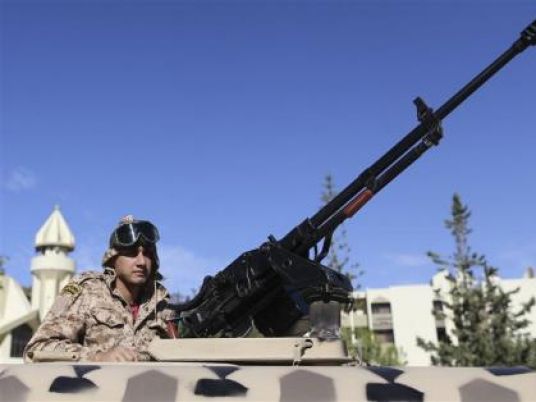
The United States has little faith in U.N.-backed peace talks in Libya because Middle Eastern countries are defying requests to end their war by proxy in the oil-rich North African nation, senior U.S. officials said.
U.N. special Libya envoy Bernardino Leon last week called on the main factions to meet this Tuesday to initiate a dialog in a spirit of "objectivity and conciliation," but a time and place have still not been made public.
Despite months of American requests, the U.S. officials said Egypt, the United Arab Emirates and Qatar, all of which are U.S. allies, continue to encourage local factions to fight instead of compromise.
"What is the objective? What is the plan for success here?" asked a senior American official who declined to be identified. "It seems quite clear that the more foreign countries get involved in Libya, the more unstable the situation becomes."
Egypt and the United Arab Emirates back the internationally recognized government led by Abdullah al-Thinni operating in the east. U.S. officials say Qatar has supported Libya Dawn, which controls the capital Tripoli, but Qatar denies this.
Last week Thinni's government said in a statement its forces had started a military offensive to take back Tripoli. His government has allied itself with former army general Khalifa Haftar who declared war on Islamists in May.
U.S. analysts say in recent weeks Egypt's military-led government, in particular, had undermined diplomatic efforts by its support for Haftar, and said this had emboldened Thinni, who launched a series of air strikes.
Claudia Gazzini, senior Libya analyst for the International Crisis Group, an independent conflict-prevention organization, said the eastern forces seemed suddenly to believe they could take the whole country. "I don't think this mentality would have been possible without the overt and covert support of Egypt," she said.
The senior American officials emphasized that deep tribal and political divisions were the core source of the conflict, which broke out after the NATO-backed uprising in 2011 ended 42 years of dictatorial rule by Muammar Gaddafi.
Chaos benefits the extremists
Egypt and the United Arab Emirates have made Libya part of their regional campaign to crush the Muslim Brotherhood and other Islamists, declaring them terrorists. Qatar is supporting the Brotherhood and other Islamists they say are moderates.
In a pattern reminiscent of Syria, the resulting chaos is benefiting Libyan extremist groups, some of whom have declared themselves Islamic State allies.
"What we're still not seeing is a way to put the pieces together," said a second senior U.S. administration official,
Washington says it has spent months trying to ease rivalries inside and outside Libya. In September, Secretary of State John Kerry met with Egyptian President Abdel Fattah al-Sisi in Cairo and urged him to let Libyans decide their own fate.
In November, American officials threatened to impose sanctions on Libyan factions who continued fighting, and urged regional powers to back dialogue, not military action.
But two weeks later, Sisi called on the United States to help Libya's elected prime minister crush Libya's Islamists.
Ben Fishman, a Libya expert at the International Institute for Strategic Studies, said Washington's attention was clearly focused on its campaign against Islamic State fighters, sometimes known by the acronym ISIL, in Iraq and Syria.
"As long as the central focus of U.S. policy in the region remains on ISIL and Iran, as it should, it will be extremely difficult to fashion a new coalition to attempt to right the course in Libya," Fishman said.
